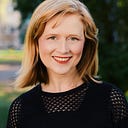How VR Can Lead to False Memories
Just recalling a memory strengthens it, which has some unexpected downsides.
The human mind functions more like a coping mechanism than a well-oiled machine. We humans are easily fooled into erroneously believing that we have encountered people, objects, and events before when in fact we have not, especially when they are similar to ones that we have genuinely experienced. So what does this mean in VR?
Presence has a downside in VR
Somehow it has become ideal in VR to achieve a high feeling of presence (“being there”). However, the more real a VR experience feels to people, the more likely they are to confuse it with something similar that they have encountered in real life — something to keep in mind when designing darker VR experiences.
But how does this work? It has to do with the malleability of memory. Any content online or offline can change your memory. Even telling a story at a dinner party about your childhood changes your memory of it. The process of recalling a memory itself strengthens it in comparison to other memories.
As Jeremy Dean puts it, “Many memories which have the scent of authenticity may turn out to be misremembered, if not totally fictitious events, if only we could check. Without some other source with which to corroborate, it is hard verify the facts, especially for events that took place long ago…”
In VR, the high presence and photorealism of Google Earth VR could easily lead to people making mistakes in their memory. For example, it would be easy to fool a native of Canton, OH by putting him in Google Earth VR, telling him he’s looking at Canton (when it’s actually Dayton, OH) and asking him to tell you a story about growing up in this neighborhood. I would guess that almost all people would tell you a memory of the place that did not actually occur there, and by doing so would be confusing their own memory of the event (where it actually happened). This is what can happen when photorealism intersects with the nature of memory — the more similar things are to authentic memories, the more likely one is to be tripped up.
Our Memories and Fantasies Intermingle
Here’s a recap of a study where participants were shown images and came to believe they had seen the real art in a museum, but in fact had only ever seen photos. Jeremy Dean summarizes:
“In the experiment participants took part in a self-guided museum tour where they were told to stop at particular exhibits along the way (St. Jacques & Schacter, 2013). These stops on the museum tour are the experimental stand-ins for the events you’ve experienced across your life.
Participants were asked to look at a series of photos showing the stops they visited during their tour, a sort of ‘event-movie’, thus retrieving or reactivating memory. Following retrieval, they were shown a new photo taken at the museum that showed stops that were not part of their tour.
…In the study participants returned for a third session and were shown photos and asked whether they’d stopped at the exhibit or not. Once again, some of the time they were shown pairs of exhibits they had or hadn’t looked at and other times real and false memories were mixed up together.
Across the three sessions, then, the researchers had simulated the recall of the jumble of real and false memories that are likely to be returned to consciousness when we try to recall past events. Real aspects of a memory get mixed up with false aspects and the whole confection gets stirred up each time we recall it.
In the study they found that participants’ memories were both enhanced and distorted by the process of recall. People found it easier to remember those exhibits which they were subsequently shown photographs of. This shows that merely recalling a memory is enough to strengthen it.
This is one illustration of how memory is an active, reconstructive process; recalling something is not a neutral act, but rather it strengthens the recalled memory in comparison to others.
What this is showing is how false memories can grow in the mind. Of course, in real life things don’t happen as cleanly as they do in the psych lab. Our memories and fantasies are intertwined, crossing over and interfering with one another. Thinking about the past continues this process of interweaving…
Choosing to recall certain events rather than others is a way of choosing how we live now and what decisions we make in the future.”
Takeaways for Designers:
- Human memory is easily influenced by fantasy.
- Giving people experiences in VR can subsequently alter their real life memories.
- Presence is not always desirable, especially if you are making dark, realistic content.
This article originally appeared on The Extended Mind blog.
Additional reading:
Dean, Jeremy. “Reconstructing the Past: How Recalling Memories Alters Them” <http://www.spring.org.uk/2013/02/reconstructing-the-past-how-recalling-memories-alters-them.php>
